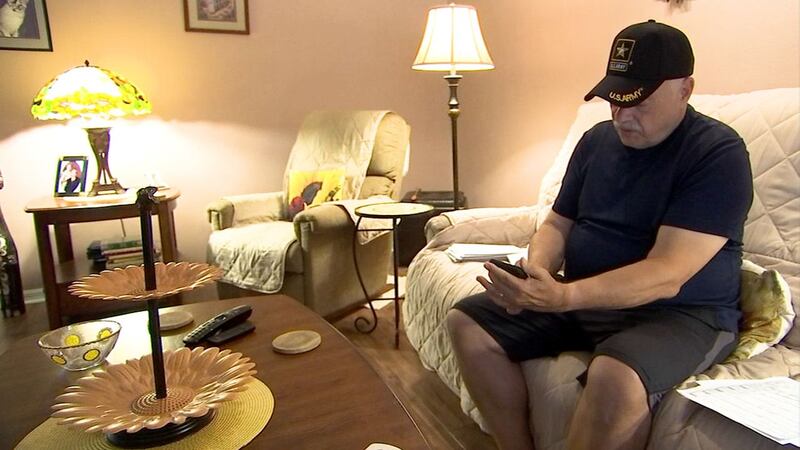DELAND, Fla. — A local Army vet contacted Action 9 after losing thousands of dollars from a scheme that began when he was setting up a new TV.
“I’m 68 years old. I’m a vet. I thought I knew everything. I thought I was smart when it came to things like that,” Steve Villone said.
He claims scammers hustled him out of $6,000 when he bought a new TV and attempted to add the Prime Video app. He went to what he thought was Amazon’s activation website and entered an access code.
“In this case, after I entered the code, there was an 800 number that popped up and said you need to call this number, so that’s how it started,” Villone explained.
READ: Cincinnati standoff: Man who attempted to breach FBI office killed, officials say
The scammer gained access to his Amazon account and installed the TV app, which convinced Villone that he was dealing with Amazon. According to Villone, the person on the phone proceeded to tell him that his Amazon account had been compromised, and they had to use Zelle, tied to his Wells Fargo account, to block potential fraud. There were dozens of transactions.
Villone said he couldn’t believe what happened. “It turns out that I lost $6,000.”
He filed a police report and made a fraud claim with Wells Fargo. So far, the bank has denied the claim, saying the payments were processed as requested.
“I think it’s a reasonable request to ask for the $6,000 back,” Villone said.
Zelle is a popular big-bank payment app, but many consumer groups warn it’s a security risk. Once scammers use sophisticated tricks to access your cash, it’s hard to get it back.
“It’s a huge red flag when you’re directed to talk to an organization outside the normal process,” said Eva Velasquez, president of Identity Theft Resource Center.
She says bad guys typically gain access by using look-a-like websites or phone numbers just slightly off, so consumers are convinced they’re dealing with legitimate companies and follow directions.
Just like Villone with the fake Amazon call.
“We are seeing a big uptick in the scammers simply talking us into sharing personal information which they use to cause us harm,” Velasquez said.
The Consumer Financial Protection Bureau is considering new protections for consumers who lose money after a third-party accesses their personal information through fraudulent means.
Action 9 contacted Wells Fargo and according to Villone, the bank is now reviewing his losses.
A spokesperson said the bank could not comment on a specific customer’s issue, but it is the bank’s priority to help people avoid scams and they’re working to raise awareness.
Villone said he’ll think twice about using money-transfer apps. “It’s equivalent to putting your hand on the stove, on a hot stove, and I’ll just have that visceral feeling of not wanting to do that again.”
In general, use Zelle transfers with friends and family only, and if you’re a fraud victim notify your bank, fill out a police report, and contact the Consumer Financial Protection Bureau.
Wells Fargo response:
“It’s heartbreaking when anyone falls victim to a scam, and it’s a priority for us to help people avoid scams. We’re actively working to raise awareness to prevent these incidents. We remind everyone to never send money to anyone you don’t know or a company you can’t verify as legitimate. If you have any concerns, end communication with the person who contacted you and take time to research.
When a customer files a claim, Wells Fargo has a thorough investigation process. In our review, we follow the applicable laws based on the facts of the customer’s situation.”
©2022 Cox Media Group








